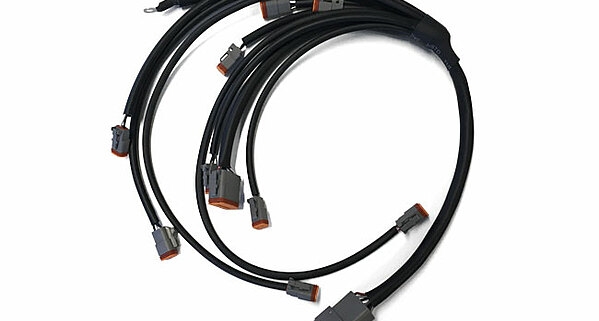What Is A Custom Wiring Harness And What Does It Do?
Custom wiring harnesses are a critical component in everyday electrical systems. They keep our cars running, our laptops powered and our washing machines spinning.
They are also widely used in more complex applications, such as airplanes, communications systems and military equipment.
But what exactly is a wiring harness?
With over 30-years experience in the industry, QCC Custom Cables are experts at designing and producing custom made harnesses.
In this blog post, we’ll take a look at the basics of custom wiring harnesses, what they are used for and how they are made. And, because we are “custom wiring harness” people, we’ll also share some insights into the work we do to help our customers get the results they are looking for.
First Things First
It’s important to note that the term “wiring harness” is often used interchangeably with other terms like wiring loom, cable harness and wiring assembly. All are essentially the same thing. Different industries have used different terms over the years.
However, there is a clear distinction between a wire and a cable. These two terms are again sometimes used interchangeably. But they really shouldn’t be.
A wire is a single strand of material, such as aluminium or copper, which conducts electricity.
A cable on the other hand consists of two or more insulated wires that run together inside a sheath. The wires inside of cables can be bonded, twisted or braided together.
Here’s The Basics Of A Wiring Harness
Without getting too technical, a wiring harness consists of an exterior sheath that covers an assortment of wires and cables.
The purpose of a custom wiring harness is two fold:
- To neatly bundle up wires and cables in order to keep an electrical system organised.
- Protect the wires and cables from damage
A wiring harness will also consist of various terminals and connectors which are attached to the wires at every exit point which connect in to other wiring harnesses, or devices such as sensors, fuses, lights and motors.
The sheath is often made from a type of thermoplastic called PVC, but can also be made from more heavy-duty materials such as corrugated conduit, wire braiding, expandable braiding, PVC tape or even different types of metal braiding.
The purpose of a wiring harness is to transmit power and/or electrical signals within a machine, vehicle, communications system or electronic device. The harness effectively “connects” a variety of components within an electronic system.
Think of a wiring harness as a bit like the human circulatory system.
How Is A Custom Wiring Harness Made?
Wiring harnesses can be made by hand or by machine. In most situations, a combination of both approaches is required.
For complex designs, manual intervention can be quicker than calibrating a machine to do the same work. However, it’s always ideal to automate where appropriate.
As volume increases, machines are used more and more to achieve economies of scale.
The process of making a harness begins with cutting the required wires to the appropriate length using a special wire-cutting machine or by hand using specialist tools.
The next step is to lay the wires out using a Harness Assembly Drawing. This is done to show how each wire is routed from one end point to another. Once all the wires have been routed, they are grouped together using cable ties, straps or tape.
Wire termination comes next. This involves stripping the insulation away to expose the core of each wire, then crimping on the terminals where specified. The wires are then inserted into sheathing and the appropriate connectors are fitted to the terminals.
Before a wiring harness can be used, it must be thoroughly tested. Highly sophisticated testing machines are used to test for continuity, short circuits, intermittent faults and insulation resistance.
If the harness passes all the necessary tests, it’s ready to be used in its intended application.
To Wrap Things Up
So as we’ve discovered, custom wiring harnesses are incredibly important component in many different electronic systems.
If you have a project that could benefit from a custom wiring harness, call the team at QCC Custom Cables.
We have the right expertise to deliver a workable solution for you, in full and on time.
For more information and advice, simply click here to get in touch.




